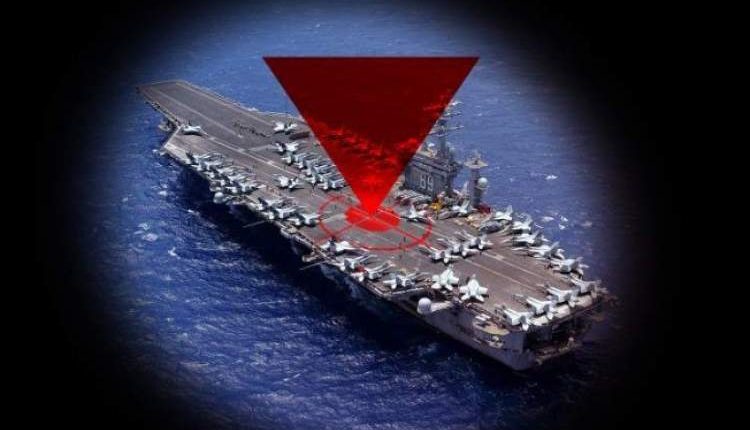The Collapse of U.S. “Deterrence”: How Yemeni Innovation Shattered the Myth of Technological Supremacy
Since the confrontation erupted in the Red Sea, it has become clear that the Israeli entity and its main backer, the United States, are not merely facing a military force on the ground but an integrated system of ideological steadfastness rooted in Quranic culture. The so-called American deterrence, long glorified through propaganda and inflated military budgets, has effectively collapsed—exposing Washington’s failure to impose global dominance and accelerating the erosion of the unipolar world order.
This American failure is not limited to financial losses—epitomized by the waste of multi-million-dollar missiles against low-cost Yemeni drones—but has evolved into a strategic defeat. It has opened the door for powers such as China and Russia to exploit the geopolitical vacuum Washington created by its reckless decision to support Israel’s war on Gaza. Yemen’s experience demonstrates that victory is not achieved through exorbitant technology, but through willpower and continuous innovation—a principle repeatedly underscored by Sayyed Abdul-Malik Badr al-Din al-Houthi, who emphasized that Yemen’s development and ingenuity will continue to outpace the enemy’s advanced systems.
From Psychological Warfare to Moral Resilience
To counter psychological and media warfare aimed at dismantling the resistance spirit, Yemen’s strategic doctrine centers on the Palestinian cause as a sacred, existential, and moral obligation. Thus, resistance operations are not seen as reckless adventures but as a fulfillment of the Quranic injunction: “And prepare against them whatever force you can muster.”
This faith-based connection enhances public awareness, enabling society to deconstruct Western propaganda through the Quranic principle of discernment (tabayyun), thereby immunizing the populace against demoralization and distortion of resistance motives.
Such internal fortification grants the resistance the moral strength to turn external threats into renewed steadfastness. The fighters’ spiritual conviction ensures that American hegemony, however massive, is fragile—a “straw” before truth-driven will—especially as the West’s continued targeting of civilians and its complicity in the genocide in Gaza have stripped it of any moral authority.
Silent American Admission: “Cobra Ball,” the Document of Failure
The so-called U.S. deterrence strategy was never purely military—it was a psychological theater of intimidation, intended to impose control without open confrontation. Washington’s alternating displays of “superweapons” and massive defense budgets were designed to frighten any nation that dared to assert independence. Yet the past two years—particularly during the Red Sea confrontation with Yemen—have dismantled this illusion, proving that propaganda cannot compensate for creative will.
In a dramatic reversal, Washington recently deployed RC-135S “Cobra Ball” reconnaissance aircraft to the Arabian Gulf—planes equipped with high-precision sensors to track ballistic launches and gather early-warning data. Ironically, this move exposed an unspoken admission of failure, acknowledging that previous U.S. systems were ineffective against Yemeni missile operations.
It also reflects mounting fear of Yemen’s advancing missile capabilities, which—during support missions for Gaza—have reached American-linked targets and exposed the myth that military spending equals supremacy.
The Battle of Continuous Innovation
In escalating its campaign against Yemen, Washington demonstrates a chronic strategic naivety, believing that new deployments or media spin could intimidate Yemenis into submission. Yet, since 2015, Yemen has adopted a Quranic and scientific approach to modern warfare—“Prepare against them whatever force you can.”
This conviction translated into advanced missile and drone systems that American technology failed to detect or intercept—whether striking Israeli and U.S. naval assets in the Red Sea or hitting sensitive sites deep inside Israel.
Sayyed Abdul-Malik al-Houthi stressed that this confrontation “transforms challenges into opportunities” and is based on a “path of innovation” that constantly evolves to outsmart enemy technologies.
Consequently, Washington’s latest weapons deployments only expose its weakness. The U.S. arsenal—though sophisticated—has become a financial and tactical liability, as expensive interceptors repeatedly fail against Yemen’s cost-effective weapons.
Yemen’s defense industry has succeeded—acknowledged even by international observers—in halting the U.S. “aerial and maritime myths”: drones once considered invincible are now falling, and aircraft carriers that once dominated the seas are now vulnerable in the Red Sea theater.
Innovation Triumphs, Arrogance Declines
Direct confrontation with Yemen has shown that U.S. intelligence and c

